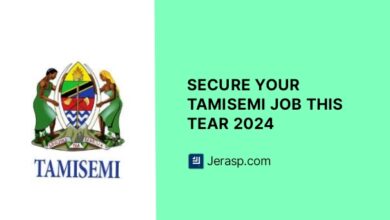The Right Answer to What is Your Greatest Weakness in Job Interview April 2023
Discussing your greatest weakness during a job interview can be a challenge, especially when you expected to highlight your strengths and abilities as the ideal candidate.
However, with a combination of self-awareness and a clear action plan, you can leverage this opportunity to differentiate yourself from other applicants by framing your weaknesses positively.

The key to successfully answering this common question is to identify weaknesses that still demonstrate strengths and prepare accordingly.
This approach will demonstrate to the interviewer that you are introspective and committed to self-improvement.
In this article, we will explore right answers to “what is your greatest weaknesses in job interview” and provide tips on how to respond to this interview question in a way that leaves a positive impression on the hiring manager.
The Right Answers to What is Your Greatest Weakness in Job Interview
The following are several ways you can positively respond to this qustion that most interviewers like to ask. “What is your greatest weakness in job interview”
[ad1]1. I focus too much on detail
Although being detail-oriented can be advantageous, it can also be viewed as a weakness if one becomes too engrossed in the specifics of a project.
During an interview, it’s essential to convey how you’re addressing this issue by emphasizing the broader perspective.
For instance: “I recognize that I have a tendency to concentrate excessively on the details of a project, which can hinder my productivity or the team’s ability to complete tasks on time.
To overcome this, I have adopted a method of regularly checking in with myself to ensure that I am not losing sight of the bigger picture.
This approach has allowed me to maintain quality standards while avoiding getting bogged down in the details.”
2. I have a trouble saying “no”
Balancing between helping colleagues on projects and managing your workload effectively is a delicate art.
While accepting all requests may portray you as dedicated and enthusiastic from your employer’s standpoint, it could also indicate that you lack awareness of your limits, and consequently, require assistance or deadline extensions to complete your work.
If you find it challenging to decline new projects due to your eagerness, it’s essential to communicate how you’re working on self-improvement by organizing your tasks and setting more practical expectations for yourself and those around you.
[ad1]For instance: You can acknowledge your weakness of sometimes struggling to decline requests, which can lead to stress and burnout.
To mitigate this, you can adopt a project management app to visualize your workload and determine whether you have the capacity to take on more tasks at any given moment.
3. I might have a trouble asking for help
Being able to ask for assistance is a vital skill, regardless of whether you lack expertise in a specific area or are feeling overwhelmed with work. Demonstrating self-awareness by knowing when and how to seek help can benefit the organization by proactively addressing potential inefficiencies.
For instance: I used to struggle with requesting assistance since I am an independent worker who prefers to operate swiftly.
However, I have come to realize that asking for help when I’m unsure about something or struggling to manage my workload benefits both myself and the company.
Furthermore, I acknowledge that many of my colleagues possess specialized knowledge and abilities that can enhance my work quality.
While I am still working on perfecting this skill, I have been able to produce better quality work by leveraging the expertise of those around me.
4. I get challenges working together with certain personalities
There are times when I struggle to work with certain personality types. It’s not uncommon for even the most adaptable individuals to face challenges when working with people who possess specific personality traits.
Being an effective team player requires an awareness of how you work with others and the ability to adjust your approach to suit the needs of the organization.
In my experience, I have encountered some personality types that I found challenging to work with. I have found it difficult to work with people who are overly critical or dismissive of ideas that aren’t their own.
However, I recognize that everyone brings different perspectives to the table and that diverse personalities can be beneficial for the team.
To overcome this obstacle, I have worked on improving my communication skills and being more assertive with my ideas.
I make sure to express my thoughts clearly and respectfully while also actively listening to other team members.
By doing so, I have found that I can better collaborate with different personality types and work toward a common goal together.
If you find this article helpful please follow us on Twitter, Telegram

